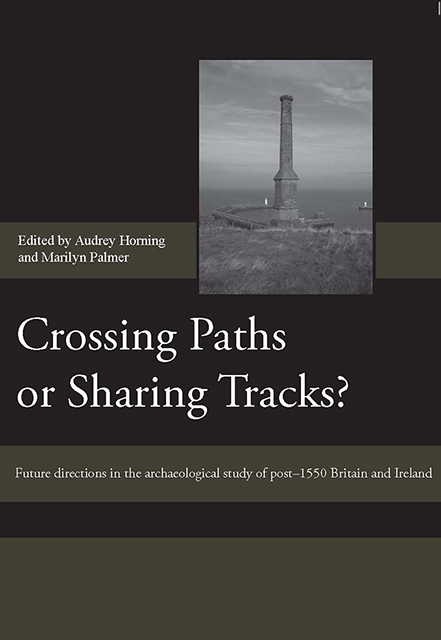 Crossing Paths or Sharing Tracks?
Crossing Paths or Sharing Tracks? Of Practice & Paradigm Introduction
Published online by Cambridge University Press: 07 March 2023
Summary
The nine chapters in this section set out individual views on the contemporary practice of archaeology of the past five hundred years. Chapter 1, by Charles Orser, situates the practice of historical archaeology into a global context, considering the dialectic between scales of analysis. How do we acknowledge those global forces resultant from early modern European expansion such as capitalism and class formation without losing sight of understandings of individual human action rooted in the material evidence of archaeological sites? Orser grounds his discussion with a consideration of the archaeology of 19th-century rural Ireland, and argues strongly that ‘now is the time that archaeologists must think even more determinedly about linking theory and practice’.
Following Orser's overview of the multi-scalar character of historical archaeology and its theoretical underpinnings are three chapters that focus very specifically upon the debates within contemporary British industrial archaeology, which were themselves a spark for the original Crossing Paths or Sharing Tracks? conference. In chapter 2, David Gwyn provides an eloquent and measured overview of the debate between industrial archaeologists over the centrality and relative merits of approaches prioritising technology and approaches that prioritise the human experience. Gwyn situates his discussion in the context of the overall development of industrial archaeology, born in the aftermathof the Second World War, and long characterised by two interest groups: a sizable corps of avocational industrial archaeologists ‘who found for themselves an interesting and challenging hobby to follow’, and a much smaller, if at times more vocal, academic cohort.
While Gwyn ultimately sees no fundamental rupture in contemporary industrial archaeology, in the next chapter Michael Nevell acknowledges that there are ‘extreme elitist’ voices in industrial archaeology that reject contemporary research agendas and ‘do not wish to engage withthe wider archaeological community’. Not shying from self-reflexivity, Nevell then admits his own greater interest in the social, rather than technological, elements of industrial production. Using the distribution of mills in the Greater Manchester region, Nevell then illustrates how the two approaches, technological and social, invariably provide contrasting explanations for similar data sets. In the final analysis, he suggests that ‘the current debate should not be about whether we should do these things and whether this is truly industrial archaeology, but how well we understand the interconnection between machine and landscape, society and technological change’.
Information
- Type
- Chapter
- Information
- Crossing Paths or Sharing Tracks?Future directions in the Archaeological Study of Post-1550 Britain and Ireland, pp. 3 - 6Publisher: Boydell & BrewerPrint publication year: 2009